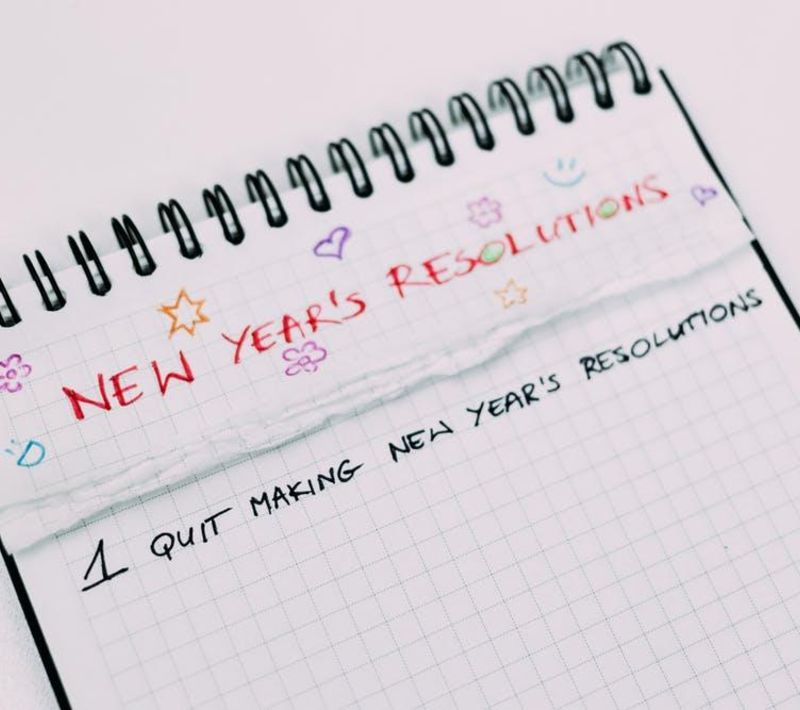Why Do People Make New Year Resolutions and Break It Afterwards?

While this might be a difficult question to answer as the human mind is invariably complex, it is not impossible to know why, and the truth is this: the act of making and breaking new year resolutions happens to the best of us —at least 92% of the inhabitants of planet Earth, anyway.
If you’re like most people you’d find yourself invariably excited about the new year, and your goals for the year ahead. But as weeks go by, the story changes and takes a new narrative. While the attitude to turn your goal into action may be very prevalent during the first weeks of the year, by mid-February, you’d find that you’ve forgotten about your resolutions, or just been weighed down by a great inability to get them done.
Why do People Make New Year Resolutions?
One of the major reasons we make resolutions is because we are humans. A lot of individuals interpret the start of a new year to mean the universe is offering them another opportunity at a new start, a new slate, a fresh opportunity to make amends and start all over.
People are often in the behavior of setting up new deadlines, goals, and plans every new year, and at the start of something new. while this is a beautiful tradition that has come to stay over the years, 90% of the time, half of those expectations are never met for numerous reasons that I shall be listing out.

Image Source: Unsplash
Numerous research points that as many as 50% of individuals (adults) in the United States make new year resolutions, but unfortunately less than 5% of that number follow through with their resolutions for the year.
Isn’t that an alarming statistic? Why do people have problems with keeping their resolutions? Why do people have a hard time keeping their promise to do better by themselves? Research also shows that it’s healthier to have a new year resolution. This is because people who do are more likely to achieve their goal than people who don’t. But first, before we discuss any of this, let us consider how the tradition of new year resolutions was invented.
Who Started This New Year Resolutions Trend
In ancient times, new year resolutions have been traced to the early Babylonians. These people at the start of a new year made promises to their gods, and promised to return all borrowed objects, and pay their debts. It was a festive tradition that helped them gain favor from the gods. The Romans also had a similar tradition. Every start of the year, they’d make promises to the god Janus, the god for whom the month of January is named.
In the medieval era as well, the knights took a special oath called the “peacock vow” at the end of the year to reaffirm their stance to chivalry and knighthood.
It is the same tradition as Christians as it is for others.
At watch night services, many Christians prepare for the year ahead by praying and making new resolutions and commitments to God.

Popular New Year Resolutions People Make
Amidst all this, every year, a study has shown that the recurring themes for each New year’s resolutions are usually very closely related. What that means is that 5 in 10 people make similar resolutions every new year, making the list below the top 10 most popular resolutions to make:
- Exercise more
- Lose weight
- Get organized
- Learn a new skill or hobby
- Live life to the fullest
- Save more money/spend less money
- Quit smoking
- Spend more time with family and friends
- Travel more
- Read more
Experts also say that while being the most recurrent of new year resolutions, these resolutions are far less achievable, as the statistics indicate that such resolutions hardly ever result in success at the conceivable time of evaluation, which is usually at the end of the year. Why then do we fail our new year resolutions?
5 Reasons Why Your New Year’s Resolutions Always Fail

1. Your Goals Are Not Specific
You have a litany of things you hope to do but not how to do them. For instance, goals like Travel more, and read more are not specific and would become unachievable in the long run. Instead of writing like this, instead, write specific goals like: I would read 2 chapters of my Bible every week.
This way, you have a clearer mental picture of how you intend to carry out your resolution. “By the end of January, I should have traveled to China.” This is what a specific goal looks like.
2. Your Goals Are Not Realistic
Well, we know and can sniff these kinds of resolutions from afar. In our heads, they sound a lot like “I would finish 1,000 books in 365 days.” “I’d run around the neighborhood every morning for 5 hours.” While it’s not impossible to achieve, these goals are simply not feasible and realistic especially when you have never stretched yourself to do so much before.
The best advice to take is this: If you don’t get it out of your head in time it might become just like one of those resolutions that fail eventually. The goal is to set goals that do not automatically change your already existing lifestyle.
3. You Have too Many Resolutions and It Is Overwhelming
Specifically, if you’re just walking the path for the first time, don’t set a lot of new year resolutions. That’s like setting yourself up for failure. Don’t set goals that are both unrealistic, unspecified, and too much for your mental health.
4. Less Determination to Break Old Habits
Should we talk about existing bad habits that generally inhibit the progress of your resolutions? Bad habits are just what it is called. They leech off you and your resolutions 24/7.
5. Failed Motivation
This is what happens when you don’t start to see the same amount of results that was originally anticipated in the first few days/week of your resolution journey.
So, how then do we set new year’s resolutions that work and produce results at the beginning, middle, and end of the year?

7 Tips to Maintain Healthier New Year Resolutions in 2025
Here are 7 tips to maintain healthier new year resolutions in 2025.
- Set SMART Goals
- Set your goals into achievable bits and structures.
- Get a community of like-minded engaging individuals to make you accountable.
- Stop thinking and start acting
- There’s no perfect time to start except now.
- Track and monitor your progress
- Set accountable goals for yourself.
All images are sourced from pexels.com
The one who spells Afrolady from the larynx of her pen. She’s a high spirited, cultured and ingenuous African child, whose writing drops an unimaginative creative splash on history and carves the indignation and memories of Black women.

